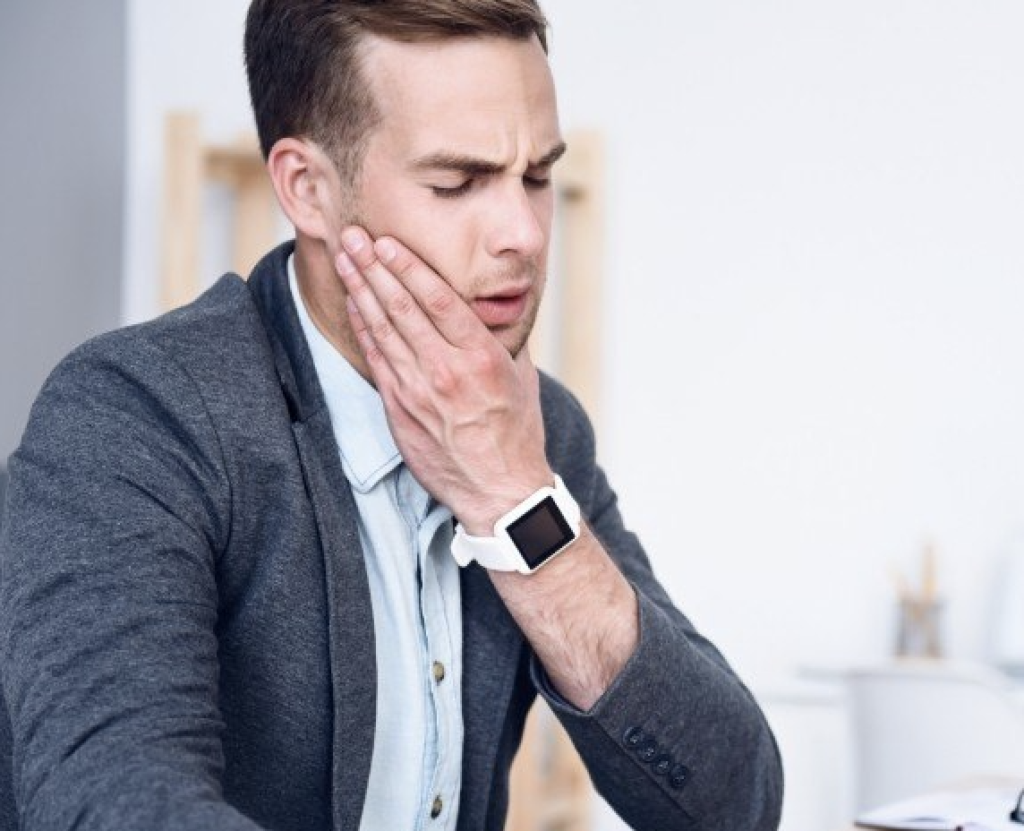
No one likes pain. It can be incredibly uncomfortable and even affect your day-to-day life. But, in order for you to find a solution to your pain, you first need to figure out what the actual problem is.
So, is the discomfort you’re feeling a TMJ disorder, otherwise known as temporomandibular joint disorder (TMD), or is it something else? Keep reading to find out the most common signs that you might have a TMJ disorder.
What are TMJ disorders?
TMJ disorders, or temporomandibular joint disorder (TMD) causes pain in your jaw joint and muscles that control your jaw movement. There are more than 30 TMJ disorders, including arthritis, dislocation, spasms, or injuries to the jaw.
TMD can be attributed to a variety of factors that affect your jaw joints. Some of these include stress, teeth grinding, clenching, arthritis in the temporomandibular joint, or trauma to the head, neck, or jaw.
Signs of TMJ disorders
TMJ disorders can cause a tremendous amount of pain in your day to day life. Here are some signs of a TMJ disorder to look out for.
Clicking or popping
Clicking or popping sounds in the jaw is a common sign of a temporomandibular joint (TMJ) disorder. It can happen when you close and then open your mouth, such as when you’re chewing or talking. It can be mild or severe, and affect both or just one side of your face.
Lock jaw
TMJ disorders cause locking in the temporomandibular joints. You may find it difficult to open your mouth or notice a locking of your jaw joint. A tight jaw might also cause discomfort in one or both sides of your face. When very severe, the TMJ can painfully lock, and could even require surgery.
Face swelling
Facial swelling is a relatively uncommon symptom of TMJ disorders, but it can happen if you have a severe and untreated TMJ disorder. This can happen as the TMJ becomes more irritated and causes inflammation around your jaws joints.
Pain while chewing or biting
Experiencing pain while chewing or biting may sign a TMJ disorder. It might be especially difficult to eat foods that are very chewy or hard.
Jaw pain
Since TMJ disorders affect your jaw joints, it’s not shocking that jaw pain is a common symptom of a TMJ disorder. If you’re feeling persistent jaw pain, that’s a strong indication that you should be consulting your dentist.
Headaches
Many people with a TMJ disorder experience headaches. Some studies show that this percentage is as high as 80%. TMJ headache pain starts in the area around the TMJ and spreads to other parts of the head, which causes a headache. The pain may be in both sides of the head, or just one.
Pain in the neck, shoulders, and ears
Because the TMJ is behind a major nerve in your face, when it is affected, you may begin to feel pain in many places, like your eyes, ears, neck, and shoulders. While minor TMJ pain might go away on its own, persistent symptoms should be evaluated by a professional.
Malocclusion
Another sign of a TMJ disorder is malocclusion. Malocclusion is when your upper and lower teeth don’t align as they should. This may not always be easy to detect yourself, which is why it’s important that you regularly have dental checkups, so your dentist can review your alignment themselves.
Other possible symptoms
There are other symptoms that may be a sign of a TMJ disorder. Some of these include tinnitus (ringing in the ears), hearing loss, and vertigo.
How to find out if you have a TMJ disorder?
While having one more of these symptoms may point to the possibility that you have a TMJ disorder. The only way to confirm this, is to visit your dentist. They will take note of your symptoms, examine your head, neck, face, and jaw, and may also take X-rays of your mouth to see your teeth placement, as well as the bones in your jaw.
What happens if your TMJ disorder is not treated?
While many symptoms of TMJ disorders go away on their own, TMJ disorders that are left untreated can cause persistent discomfort in and around your jaw. Your teeth can be damaged in the process and your jaw joints could even become inflamed. Luckily, you have options. Your dentist can help you find the right treatment for your condition and alleviate pain and discomfort.
Visit Dr. Ruiz & Associates, Inc for TMJ treatment in Burbank, CA
If you’re experiencing one or multiple of these symptoms, visit our office in Burbank, CA! The expertise and personalized care provided by Dr. Ruiz and his team can provide you with top-notch TMJ treatment in Burbank, CA. We will evaluate your facial and oral structures to determine the right treatment for you. Check out our Google reviews and call our office to make an appointment!




